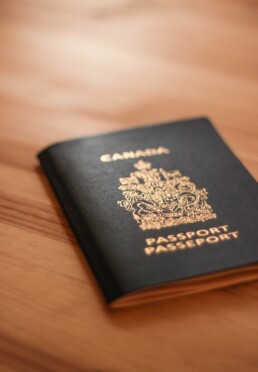Immigration Lawyers in Canada Weigh in on Bill C-24
On Monday, October 19, 2015 Canada voted in Liberal leader Justin Trudeau as the country’s new Prime Minister. While Canadians everywhere are still buzzing about the news, the question immigration lawyers in Canada have on their minds is whether Trudeau will live up to the comments he made at the September 28th leaders’ debate on foreign policy and immigration in Canada. During the debate, which quickly got heated, Trudeau argued with Harper about aspects of Bill C-24 — the legislation responsible for changing immigration in Canada.
“A Canadian is a Canadian is a Canadian, and you devalue the citizenship of every Canadian in this place and in this country when you break down and make it conditional for anybody.” Said Mr. Trudeau regarding the change to immigration in Canada during the debate. The question immigration lawyers in Canada and the rest of the population want to know now is: will he live up to these words?
Prime Minister Trudeau, who vowed to repeal Bill C-24 if elected, had one qualm in particular — the provision that allows the revocation of citizenship. According the new Act, the government can revoke the citizenship of dual-citizens who have been convicted of high treason, terrorism, engaging in an armed conflict against Canada and other terrorism-related offences, as long as it does not leave the individual stateless (meaning their other citizenship remains intact).
Immigration lawyers in Canada and citizens alike have expressed themselves on the impact of this new legislation for immigration in Canada and the rights of dual citizens. It remains to be seen how quickly the new government will take concrete steps to address the concerns with this legislation, and whether they will repeal it or make necessary amendments to it to ensure the equal and fair treatment of every Canadian citizen. This will also send a signal that Immigration Canada has a heightened awareness of the Canadian Charter of Rights and Freedoms, and in particular section 15 which guarantees every individual the right to equality.
Share this article
Arghavan Gerami
Arghavan Gerami is the Founder and Senior Counsel at Gerami Law Professional Corporation ('PC'), a full-service immigration law firm in Ottawa, Ontario. Since 2011, Ms. Gerami has focused her practice on immigration and refugee litigation. Prior to that, Ms. Gerami worked at the Ministry of Attorney General and the Department of Justice and had the privilege of serving the Honourable Mr. Justice M. Evans at the Federal Court of Appeal on immigration and administrative law appeals. Ms. Gerami contributes to the Immigration Law Section of the Canadian Bar Association, the Canadian Association of Refugee Lawyers, and the United Nations High Commissioner for Refugees. Ms. Gerami has also published numerous journal articles and presented at various immigration and refugee law conferences and events across Canada.

